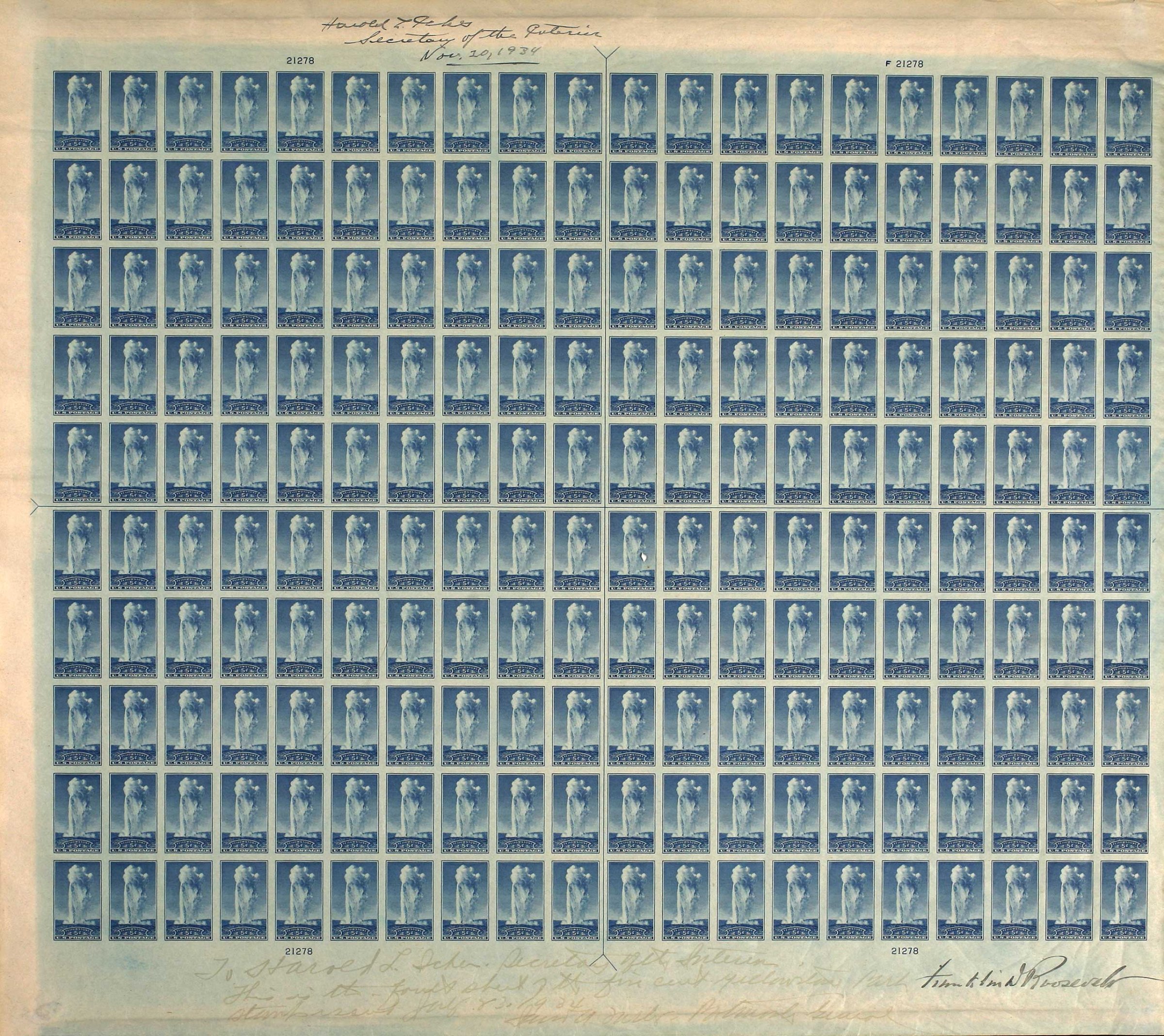
A new exhibition at the Smithsonian’s National Postal Museum—”Trailblazing: 100 Years of Our National Parks”—opens on Thursday, marking the upcoming centennial of America’s National Parks System with what Daniel Piazza, the museum’s chief curator of philately, called in a statement the “surprising and unusual ways” in which “the parks and the mail are intertwined.”
Those “unusual ways” range from the mechanisms used to move mail through the parks to letters from historic park-related sites—and to the sheet of stamps seen above, which has its own unusual story.
Get your history fix in one place: sign up for the weekly TIME History newsletter
As the Smithsonian explains, this sheet of 1934 Yellowstone Park stamps is special because it’s “imperforate.” In other words, there are no perforations around the individual stamps. There’s also no glue on the back. In fact, they’re not really meant to be used for mailing anything. Postmaster General James Farley had prepared a number of sheets like this to give as gifts in 1934. They bore his autograph and were intended for his most important friends, like President Roosevelt. When the news leaked to stamp collectors, after a few of the gifts made it to the open market, the resulting scandal led him to order the printing of a large run of similar sheets that would be available to the public—and earned the stamps the nickname “Farley’s Follies.” (The photograph above shows one of the originals.)
As the Chicago Tribune reported in 1940, stamp collectors saw Farley’s use of the imperforate sheets as a “betrayal” of the people who loved stamps most. Though he did pay face value for the stamps he took, his signature and their mid-production state gave them far greater value to experts, turning Farley’s gifts into what some saw as major political bribes and an attempt to skew the stamp market. Though the decision to make similar sheets available to the public reduced their value, many stamp collectors never forgave Farley.
More Must-Reads From TIME
- Dua Lipa Manifested All of This
- Exclusive: Google Workers Revolt Over $1.2 Billion Contract With Israel
- Stop Looking for Your Forever Home
- The Sympathizer Counters 50 Years of Hollywood Vietnam War Narratives
- The Bliss of Seeing the Eclipse From Cleveland
- Hormonal Birth Control Doesn’t Deserve Its Bad Reputation
- The Best TV Shows to Watch on Peacock
- Want Weekly Recs on What to Watch, Read, and More? Sign Up for Worth Your Time
Write to Lily Rothman at lily.rothman@time.com